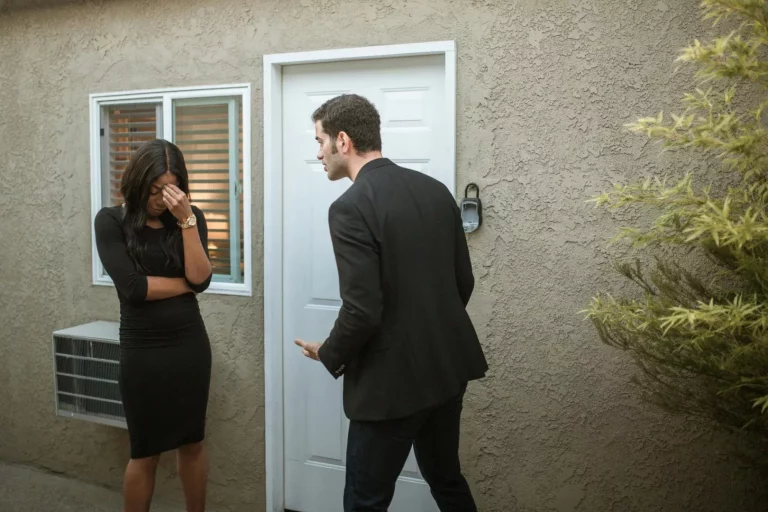Healing After Divorce: How to Get Over a Divorce You Didn’t Want
Have you ever felt lost and heartbroken after a divorce you didn’t want? At TheBostonDivorceLawyer, we understand the pain and offer guidance on how to heal and move forward. Let our experienced team help you navigate this challenging time with support and compassion.
Based on the information provided in the book “Rebuilding: When Your Relationship Ends“ by Dr. Bruce Fisher and Robert E. Alberti, the key steps to getting over a divorce you didn’t want include seeking out support from friends and family, engaging in self-care activities, and attending therapy or counseling sessions to process your emotions. Additionally, it is important to give yourself time to heal and grieve the loss of the relationship before moving forward.
Acceptance
One of the first steps in dealing with a divorce is to accept it. Understand that the divorce has happened and there’s no turning back. Accepting this reality can hurt, but it’s needed to move on.
Acceptance doesn’t mean you have to agree with the divorce or be happy about it. It just means recognizing that it happened and knowing that fighting it won’t change things. It’s okay to grieve the loss of your marriage and the future plans you had.
Talking with friends, family, or a therapist can help you deal with your feelings and understand the divorce better. As far as I’m concerned, it’s important to let yourself feel whatever emotions come up, whether it’s sadness, anger, confusion, or even relief.
It’s also important to take care of yourself during this tough time. Make sure you’re looking after your physical, emotional, and mental well-being. Do things that make you feel better, like exercising, writing in a journal, or spending time with people you care about.
Remember that acceptance takes time and it’s okay if it doesn’t happen right away. Be patient and gentle with yourself as you go through this difficult period in your life.
Self-care
Taking care of yourself during a tough time like a divorce is very important. Make sure you:
– Eat healthy food
– Get enough sleep
– Exercise regularly
These habits help your body handle stress better. Find time for things that make you happy and relaxed, whether it’s reading, walking, or listening to music. Stay close to friends and family who support you.
Your mental health is important too. Consider seeing a therapist or counselor to help you work through your emotions. Practices like mindfulness and being kind to yourself can calm your mind. In other words, writing in a journal can also help you express and manage your feelings.
Emotionally, it’s okay to grieve the end of your marriage and the future you lost. Allow yourself to feel all the feelings—anger, sadness, confusion—without judging yourself. Be kind to yourself and understand that it’s okay not to feel okay.
Self-care is even more important during difficult times. By looking after your physical, mental, and emotional health, you can start to heal and move forward from an unwanted divorce. Be gentle with yourself and make your well-being a top priority.
Seeking support
Basically, it’s normal to feel sad, angry, or lost. Talking to friends, family, or a therapist can help you manage your feelings. Sharing your emotions can make you feel better and help you understand what you’re going through. Take care of yourself during tough times.
Come to think of it, don’t hesitate to ask loved ones for comfort and advice. Spend time with positive people and do things you enjoy. Be patient with yourself as you go through this hard period. Healing takes time, but with support, you can move forward and build a happy life.
Setting boundaries
Basically, it’s important to clearly communicate your needs and limits to your ex-spouse. You might need to set boundaries around communication, like only talking about important issues and avoiding topics that upset you. Limiting contact with your ex, especially if it stresses you out, is also okay. Focus on your own feelings and needs during this time.
Boundaries are not just with your ex but also in other parts of your life. Know your limits and don’t push yourself too much during this tough period. Allow yourself to take breaks from stressful situations and practice self-care. If you think about it, this might mean setting boundaries with friends and family who don’t understand what you’re going through.
You also need to set boundaries with yourself. Let yourself feel your emotions without judgment and give yourself time to heal. Be kind to yourself and don’t rush the process. It’s okay to say no to things that don’t help you right now.
In general, setting boundaries after an unwanted divorce can help you heal and move forward in a healthy way. By caring for yourself and setting limits on what you’re comfortable with, you can start to rebuild your life and find peace.
Moving forward
Come to think of it, take things one day at a time and let yourself feel the emotions that come with a big loss. Talk to friends and family for support, and think about seeing a counselor to help you understand your feelings. It’s normal to feel sad, angry, or confused right now, but remember that these feelings will pass.
Take care of yourself by getting enough sleep, eating healthy, and staying active. Find healthy ways to handle stress, like meditating, writing in a journal, or doing hobbies you love. So to speak, stay busy with activities that make you happy and be around positive people.
Think about setting new goals and dreams for yourself. This can give you a sense of purpose as you start this new part of your life. Try to move on from the past and forgive yourself and your ex-partner for any mistakes. Holding onto anger or sadness will only keep you stuck.
Remember that healing takes time and it’s okay to go at your own pace. Be patient with yourself and trust that you will find peace and happiness again. Believe that each day brings you closer to a better future.

In Closure
It is very important to prioritize self-care and seek support from friends, family, and professionals.
What TheBostonDivorceLawyers is encouraging to check is that by acknowledging your emotions, allowing yourself to grieve, and focusing on personal growth, you can gradually move forward and create a fulfilling new chapter in your life.
Remember that healing takes time, but with patience and resilience, you can overcome this challenging experience and emerge stronger than before.
References
- “Rebuilding: When Your Relationship Ends” by Bruce Fisher, Impact Publishers
- “Crazy Time: Surviving Divorce and Building a New Life” by Abigail Trafford, Harper & Row Publishers
- “The Divorce Recovery Workbook: How to Heal from Anger, Hurt, and Resentment and Build the Life You Want” by Mark S. Rye, New Harbinger Publications







